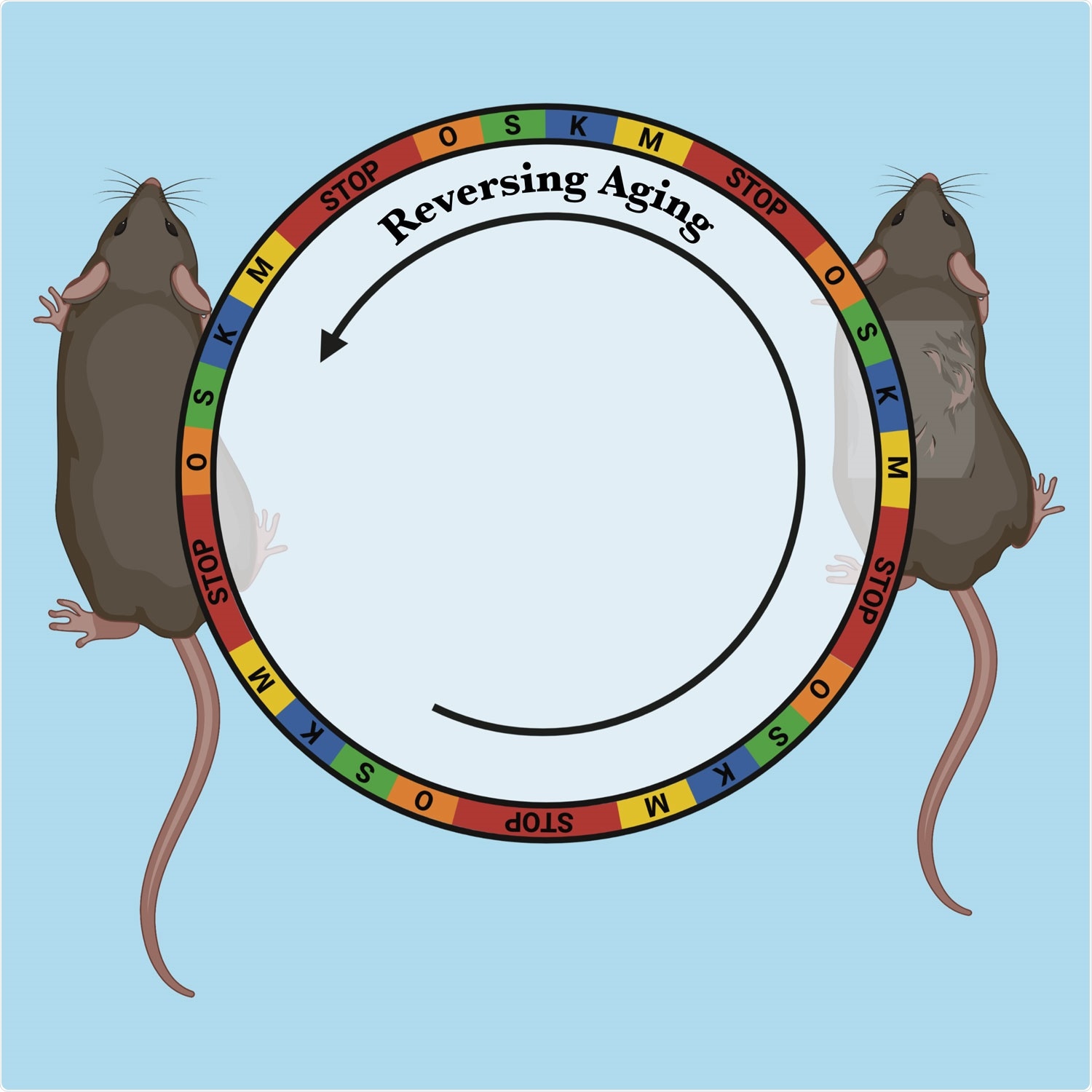
Cellular rejuvenation therapy safely reverses signs of aging in mice. Image Credit: Salk Institute for Biological Studies.
Although age is simply a number, it has a lot of negative consequences, such as brittle bones and weak muscles, as well as an elevated risk for heart disease and cancer. Researchers at the Salk Institute, in partnership with Genentech—a Roche group company, have now demonstrated that they can efficiently and safely reverse the aging process in middle-aged and old mice by partly resetting their cells to more youthful states.
“In addition to tackling age-related diseases, this approach may provide the biomedical community with a new tool to restore tissue and organismal health by improving cell function and resilience in different disease situations, such as neurodegenerative diseases,” Belmonte added.
Not only do creatures’ outer appearances and health vary as they age; each cell in their bodies contains a molecular clock that tracks the passage of time. In comparison to younger individuals or animals, cells separated from older humans or animals exhibit distinct patterns of chemicals along their DNA—called epigenetic markers.
Researchers have discovered that injecting a cocktail of four reprogramming molecules—Oct4, Sox2, Klf4, and cMyc, sometimes known as “Yamanaka factors”—into cells can restore epigenetic marks to their original patterns. This method allows researchers to turn adult cells into stem cells at a later stage of development.
In 2016, Izpisua Belmonte’s laboratory demonstrated for the first time that the Yamanaka factors may be used to slow down the signs of aging and extend the lifespan of mice with a premature aging condition.
The researchers recently discovered that Yamanaka factors can speed up muscle regeneration in young mice. Other investigators have utilized the same strategy to improve the operation of other tissues such as the heart, brain, and optic nerve, which is crucial in vision, as a result of these first findings.
Izpisua Belmonte and his colleagues examined different approaches to cellular regeneration in healthy mice as they aged in the latest study. One group of mice was given Yamanaka factors on a regular dose from the time they were 15 months old till they were 22 months old, which is almost equal to 50 to 70 years in humans.
Another group was treated for 12 to 22 months, equivalent to 35–70 years in humans. A third group received treatment for just one month at the age of 25 months, which is similar to the human age of 80.
What we really wanted to establish was that using this approach for a longer time span is safe. Indeed, we did not see any negative effects on the health, behavior, or body weight of these animals.”
Pradeep Reddy, Study Co-First Author and Staff Scientist, Salk Institute for Biological Studies
There were no blood cell abnormalities or neurological modifications in the Yamanaka factor-treated mice as compared to control animals. Furthermore, no malignancies were discovered in any of the animal categories.
When the researchers conducted normal markers of aging in the mice that had received the medication, they discovered that the mice resembled younger animals in several ways. The epigenetics of treated animals were more similar to epigenetic structures seen in younger animals in both the kidneys and the skin.
When treated animals were injured, their skin cells had a stronger capacity to grow and were less likely to build permanent scars, whereas older animals have less skin cell proliferation and more damage. Furthermore, metabolic components in the blood of treated mice showed no signs of normal aging.
This youthfulness was detected in mice treated with Yamanaka factors for seven or ten months, but not in animals treated for just one month. Furthermore, the effects of the treatment were not yet apparent when the animals were evaluated halfway through their treatment. This shows that the treatment is not simply delaying aging, but actually reversing it—though further research is needed to distinguish the two.
The researchers are now working on a study to see how long-term treatment with the Yamanaka factors affects individual molecules and genes. They are also coming up with innovative ways to convey the factors.
At the end of the day, we want to bring resilience and function back to older cells so that they are more resistant to stress, injury, and disease. This study shows that, at least in mice, there’s a path forward to achieving that.”
Pradeep Reddy, Study Co-First Author and Staff Scientist, Salk Institute for Biological Studies
In addition to being a professor at the Salk Institute, Belmonte is an Institute Director at Altos Labs, Inc.
Cell rejuvenation therapy safely reverses aging in mice
Video Credit: Salk Institute for Biological Studies.
Source:
Journal reference:
Browder, K. C., et al. (2022) In vivo partial reprogramming alters age-associated molecular changes during physiological aging in mice. Nature Aging. doi.org/10.1038/s43587-022-00183-2.